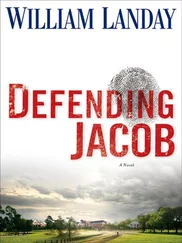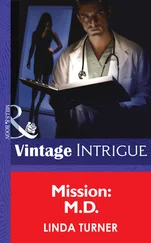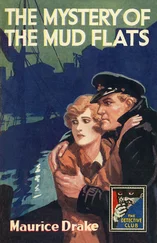William Landay - Mission Flats
Здесь есть возможность читать онлайн «William Landay - Mission Flats» весь текст электронной книги совершенно бесплатно (целиком полную версию без сокращений). В некоторых случаях можно слушать аудио, скачать через торрент в формате fb2 и присутствует краткое содержание. Жанр: Триллер, на английском языке. Описание произведения, (предисловие) а так же отзывы посетителей доступны на портале библиотеки ЛибКат.
- Название:Mission Flats
- Автор:
- Жанр:
- Год:неизвестен
- ISBN:нет данных
- Рейтинг книги:3 / 5. Голосов: 1
-
Избранное:Добавить в избранное
- Отзывы:
-
Ваша оценка:
- 60
- 1
- 2
- 3
- 4
- 5
Mission Flats: краткое содержание, описание и аннотация
Предлагаем к чтению аннотацию, описание, краткое содержание или предисловие (зависит от того, что написал сам автор книги «Mission Flats»). Если вы не нашли необходимую информацию о книге — напишите в комментариях, мы постараемся отыскать её.
Mission Flats — читать онлайн бесплатно полную книгу (весь текст) целиком
Ниже представлен текст книги, разбитый по страницам. Система сохранения места последней прочитанной страницы, позволяет с удобством читать онлайн бесплатно книгу «Mission Flats», без необходимости каждый раз заново искать на чём Вы остановились. Поставьте закладку, и сможете в любой момент перейти на страницу, на которой закончили чтение.
Интервал:
Закладка:
‘That’s where Danziger happened to be when they reached him. On vacation, apparently’
‘It’s all circumstantial,’ someone argued.
Kurth shrugged. ‘Of course it’s circumstantial. It’s a homicide; the best witness is dead.’
Cravish stroked his chin and frowned. ‘I’m not convinced, Lieutenant Kurth. Why would a drug dealer murder an assistant DA? It doesn’t make sense. There will always be another prosecutor to take his place, and another and another. The government is the biggest gang around. Why declare war on it? Besides, I’ve prosecuted guys like this before. They don’t consider the prosecutor an enemy. It’s all professional, they know that.’ The Game-Show Host was proud to announce he’d prosecuted tough guys. A supercilious look crossed his face.
‘Mr Cravish,’ Kurth drawled, ‘I don’t think you’ve prosecuted anyone like Braxton.’
‘Oh, I’m quite certain I have.’
‘Are you, now?’
From his briefcase, Kurth plucked two more eight-by-tens, which he stuck to the board with the others. The first showed a jolly-looking man with an orange beard. The second image was harder to identify. It was a dark-colored object dangling from a rope over a crumbling driveway. It might have been a laundry bag.
‘What the hell is that?’ a trooper asked.
Kurth, thinking the question referred to the man with the beard — or pretending to — pointed to the first photo and said, ‘This is Artie Trudell. He was a cop. About ten years ago Trudell was on a drug raid in the Flats. Braxton was cornered inside an apartment. He was trapped, so he blew Trudell’s head apart. Fired one shot through the front door, killing Trudell, then took off through a back door.’
There was a moment of silence. Out of respect for the fallen cop, everyone hesitated to ask about the second photo. Finally someone said, ‘What about that thing? What is it?’
‘It’s a dog,’ Kurth said.
The image came clear — the carcass of an animal suspended by its hind legs. The dog’s head was hidden behind a flap of skin that hung from the back of its neck like Superman’s cape. For some reason this photo seemed more gruesome than the others, whose subjects were merely human.
‘Braxton and his crew had a pit bull. They wanted to see how mean he could be. So they tied up this dog and turned the pit bull loose on him. This is what was left.’
‘But… why?’
‘Why?’ Kurth shook his head. ‘Because Braxton’s a fucking animal, that’s why’
A rustle went through the room. The audience was visibly uneasy, but it took a few moments before anyone screwed up the courage to murmur, under his breath, ‘Come on.’
Kurth fixed us with one of his reptile stares. ‘Listen to me, you can roll your eyes all you want, but this is what guys like Braxton do. Why? There is no why. It’s like asking, Why do sharks eat swimmers? or, Why do bears eat hikers? That’s what predators do. This guy is a predator.’
Kurth removed the photos one by one and returned them to his briefcase. Then he paused to share a philosophical thought, or at least as nearly philosophical a thought as he ever voiced: ‘The system isn’t built to handle a guy like this, who kills without even thinking about it. The system presumes that crime is logical, that people do it by choice. So we build prisons to deter them, or we offer programs to rehabilitate them. Carrots and sticks, all so these people will make the right choice. That whole model does not contemplate a Harold Braxton, because Braxton doesn’t weigh the consequences in the first place. He doesn’t choose to kill, he just kills. He doesn’t think. He doesn’t care. So there’s only one thing to do with him: Take him out of circulation. We all know it, everyone in this room.’
The audience, cops and lawyers alike, squirmed at Kurth’s directness — the police because there was no ironic distance here, none of the cool cynicism that cops swaddle themselves in when confronted with the real danger of their job, the lawyers because Kurth did not share their genteel uneasiness with calling for Braxton’s ‘removal from circulation.’ Kurth was too frank. Still, no one objected. None of us had wanted to be intimidated by Edmund Kurth, the flatlander, but we were.
After the meeting Kurth approached me and handed me a few mug shots, Braxton’s among them. He asked me to show the photos around in Versailles, to find a witness who could place Braxton in the area. Someone must have seen Braxton or one of his crew. The request was delivered in Kurth’s usual clenched manner. His body leaned forward, the little muscles of his face wriggling perceptibly. Most unnerving, he had a habit of locking his eyes on yours without glancing away or even blinking. My own eyes would sweep around the room just to avoid his, only to find upon returning that Kurth was still staring dead into my pupils.
So it may come as a surprise, given his overwound manner, that there was a strange attraction about Kurth too. He had a gorgeous purposefulness. In hindsight I see it was nothing more than the clarity of a man who is convinced his cause is righteous — Get Braxton! — but at the time he seemed to have been let in on some very profound secret. For Kurth, all the moral equivocation that underlies police work — that criminality is not the same as evil; that the criminal-justice system may be worse than the crime it is meant to cure; and therefore that policing itself is a morally ambiguous enterprise — all of it was washed away by Harold Braxton’s overwhelming malignance. Braxton was evil, therefore Kurth must be good. Simple as that. It was this great moral reduction that allowed Kurth to speak in absolutes. Braxton was not merely troubled or desperate or suffering from some behavior disorder; he was an animal, a menace to be destroyed. I doubt that Kurth ever understood it was Braxton who gave him this gift of simplicity. In fact, I doubt Kurth ever fretted over the moral complexities in the first place. But without Braxton, Kurth would not have had that sense of crusade. He would have been an Ahab with no Moby Dick, no monster to hunt.
I did as Kurth asked. I showed the mug shots around Versailles for the next couple of days. I had mixed feelings about finding a neighbor to testify against Braxton, and it came as a relief when nobody in Versailles recognized his photo. I also did a check on the victim, with limited success. A few people remembered speaking with Bob Danziger, a few more recognized his photo. But none of the September renters in the lakeside cabins, now returned to their homes in New York and Massachusetts, remembered anything specific about Danziger. And no one had any idea how long the body had been baking in that locked cabin, although the ME later put it at two or three weeks. In the end, my investigation went nowhere. To all appearances, Robert Danziger had no connection with Versailles. It looked as if he’d come with the sole purpose of dying here.
But I was hooked just the same. Hooked on Kurth’s narrative as well as the one I was composing in my own head, my own version of Harold Braxton the urban superpredator. I kept Braxton’s mug shot in the case file, and over the next days I found myself studying it, trying to find hints of the lethal predatory stuff Kurth had described. I never did see it. In the photo, Braxton seemed harmless enough. He had not struck a pose for the camera. On the contrary, he looked passive, even sleepy. In a word, his appearance was ordinary, which only added to my fascination: How could Harold Braxton — Kurth’s ‘animal’ to be ‘hunted down’ — look so unexceptional? Maybe that is always the case. Our villains always disappoint us. They never look the part. Remember the old news photos of Eichmann sitting in that Tel Aviv courtroom, blinking out from behind thick eyeglasses like some half-blind watchmaker? What a letdown, the world said. How ‘banal.’ We expect our monsters to make a better show of it.
Читать дальшеИнтервал:
Закладка:
Похожие книги на «Mission Flats»
Представляем Вашему вниманию похожие книги на «Mission Flats» списком для выбора. Мы отобрали схожую по названию и смыслу литературу в надежде предоставить читателям больше вариантов отыскать новые, интересные, ещё непрочитанные произведения.
Обсуждение, отзывы о книге «Mission Flats» и просто собственные мнения читателей. Оставьте ваши комментарии, напишите, что Вы думаете о произведении, его смысле или главных героях. Укажите что конкретно понравилось, а что нет, и почему Вы так считаете.












